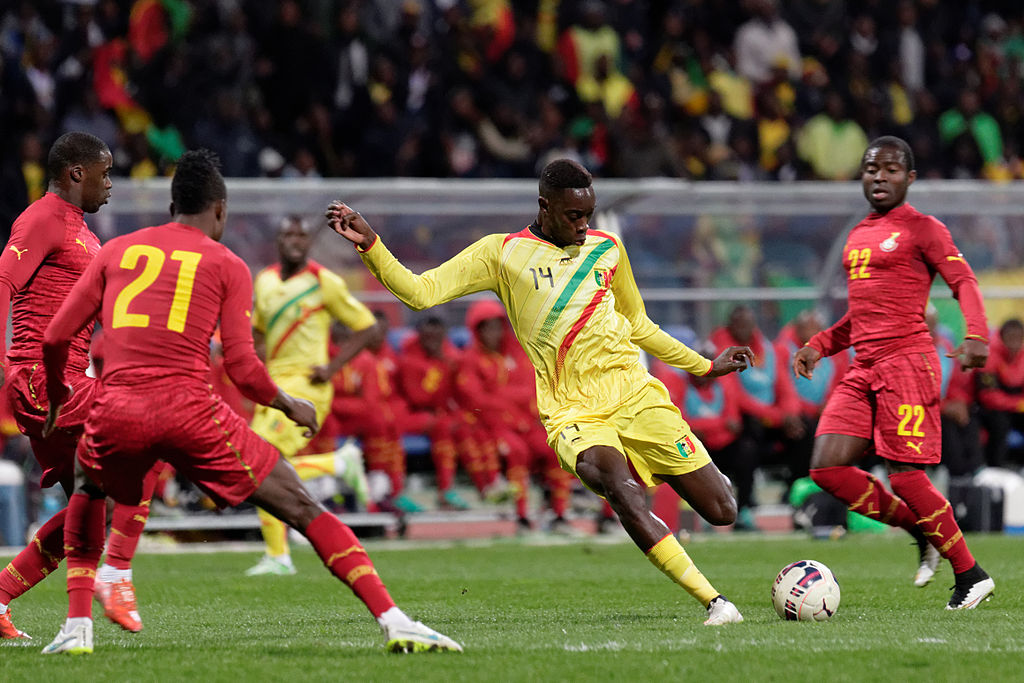The Democratic Republic of Congo Effect
What we learned from Day Six of the 2013 African Nations Cup held in South Africa.

Mali vs Ghana (Photo: Wiki Commons).
Referees are known to ruin games waving red cards. An early red card in the game between Ghana and Mali may have made this a classic. Instead the match competed with the empty rafters for attention. Both teams played nervous, uninspiring football. Futbologists may describe this as “Democratic Republic of Congo effect” or “Dieumerci dizziness.” Black Star goalie Duade who plays his club football for Ashanti Gold in Obuasi (though you would never know this if you were watching the game via various European broadcasters) blatantly clawed the ball off the toe of a Mali attacker, who was outside the box, and rolled it into his midriff, which was inside the box. What was Duade thinking? Penalty! A clear goal scoring opportunity. The last man. All that. At which point Noumandiez Doué the Ivorian referee probably remembered the memo he received last week about exuberant, early red cards. Yellow. Seydou Keita flashed the resulting free kick inches wides. That was about as close as Mali got. Emmanuel Agyemang-Badu went close for Ghana heading against a post in the 32nd minute and was upended in the box minutes later. Penalty. Badu may have taken it if he had not been winded. So up stepped Wakaso. The winning goal curled into the net despite a swan like dive from Mamadou Samassa. Wakaso was mobbed as he celebrated in front of the “Die Hard” Ghana support and revealed from a message from Mecca under his shirt. ALLAH IS GREAT. The Second Half was not.
In the second game of the day, Niger showed some Vorsprung durch Technik. The Leopards from the DRC were lackadaisical. It was not a poor game, but rather a match that did not meet expectations. DR Congo were expected to win in style tonight. They did not. Perhaps they were looking ahead. Regardless of tonight’s result, DR Congo were always going to have to beat Mali in Durban next. Niger were more than just organized and determined, however. Niger got game and could easily have won. When the Menas’ Issa Sidibé curled a shot on to the post in the opening minutes, it was a signal of Niger’s intent. They were serious about staying in the tournament. Minutes later Niger overwhelmed the Leopards in a break away. Mohamed Soumaïla shot when he should have passed. The Leopards survived. Lomana LuaLua slipped a shot wide when it was easier to score. Kassaly made two super saves from Dieumerci Mbokani. Claude Le Roy made three substitutions in the second half, but DR Congo were far too cautious and constrained by an opponent that covered the ground with more efficiency. Dieumerci Mbokani though relatively quiet was always a threat and could have scored had the advance exchanges been sharper. Niger could have clinched it at the end but Muteba Kidiaba was alert and agile. Ghana will know enough now to respect Niger. Group B’s final games promise to be fascinating.



















